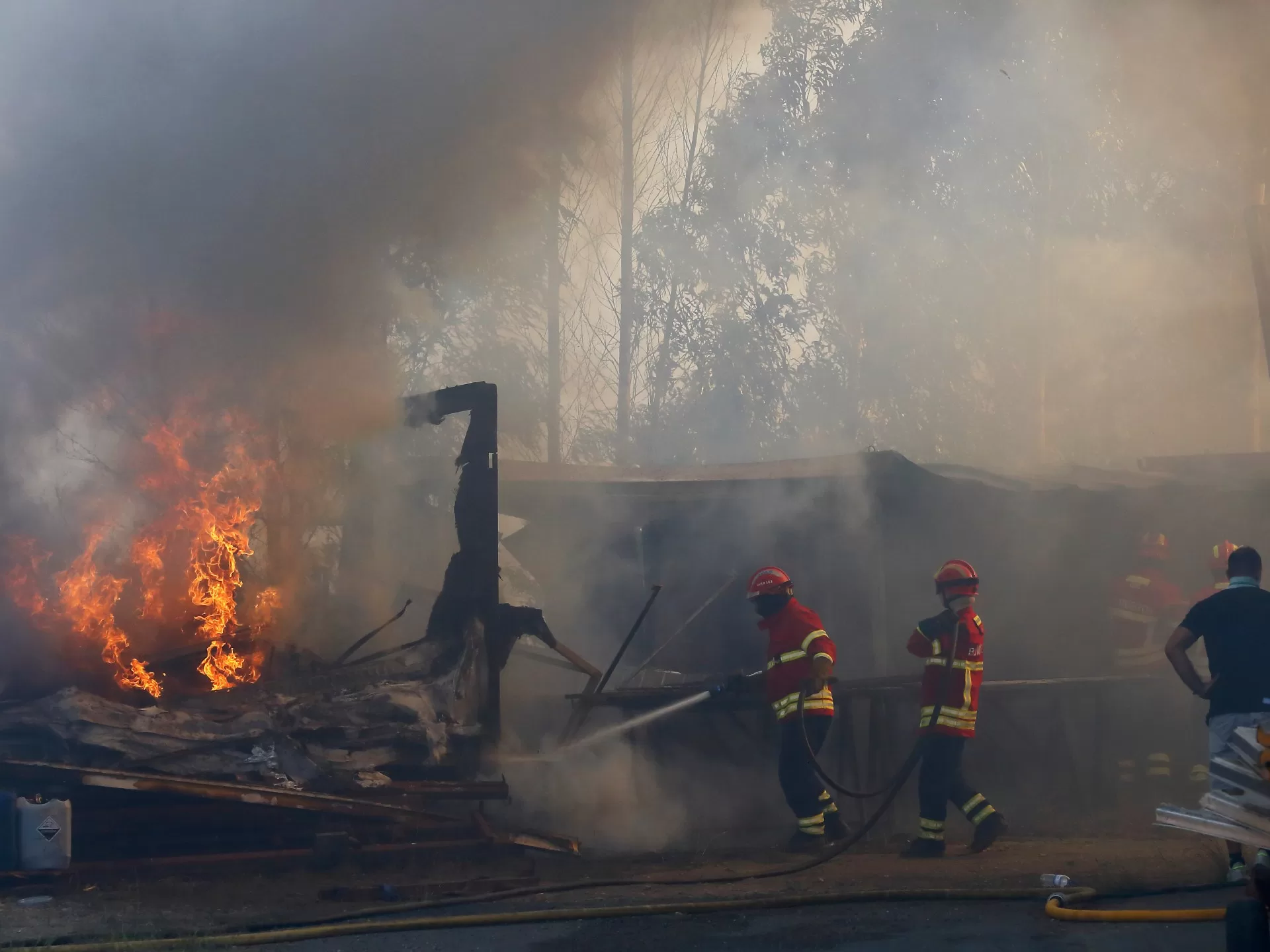The death toll in the latest wave of fires increases to seven as Portugal seeks help from the European Union.
Three Portuguese firefighters have died in one of dozens of forest blazes ravaging the country, bringing the death toll from the recently erupted wildfires to seven people since Saturday, authorities said.
Portugal is fighting more than 50 active wildfires on its mainland and has mobilised about 5,300 firefighters, as well as calling for European Union help.
Authorities have closed several motorways, including a stretch of the main highway linking Lisbon and Porto, and suspended train connections on two railroad lines in northern Portugal.
Raging since the weekend before worsening on Monday, the blazes have also injured at least 40 people, including 33 firefighters, according to the latest figures from the authorities.
ANEPC civil protection authority commander Andre Fernandes told reporters that three firefighters from the Vila Nova de Oliveirinha fire brigade had died while fighting a fire in Nelas, a town about 300km (190 miles) northeast of Lisbon.
Fernandes’s deputy Mario Silvestre said earlier that the overall situation was “calmer but still worrying and complex … with many villages and settlements being affected, and the teams very dispersed across this theatre of operations”.
He spoke from the command centre in Oliveira de Azemeis in the northwestern Aveiro district, where a cluster of four blazes has caused the most damage so far, burning down dozens of houses, and where four people have died.
Fernandes said late on Monday that the Aveiro fires that had burned through more than 10,000 hectares (24,710 acres) of forest and shrubland could engulf a further 20,000 hectares (49,420 acres).
Portugal and neighbouring Spain have recorded fewer fires than usual after a rainy start to the year, but both remain vulnerable to the increasingly hot and dry conditions that scientists have blamed on global warming.
Temperatures topped 30 degrees Celsius (86 degrees Fahrenheit) across the country over the weekend, when the fires first broke out and were fanned by strong winds.
Jorge Ponte of the meteorology agency IPMA told the Reuters news agency that Monday was “one of the worst days ever” for fire risk in Portugal, combining high temperatures even close to the sea, wind gusts that reached 70km/h (43mph), and very low humidity – all brought by an anticyclone.
These factors create “a cocktail of dangerous conditions”, he said. The situation could improve by Wednesday afternoon, he added, with a chance of showers on Thursday, although the danger would still persist.
The government on Monday requested help from the European Commission under the EU civil protection mechanism, leading Spain, Italy and Greece to send two water-bombing aircraft each.
